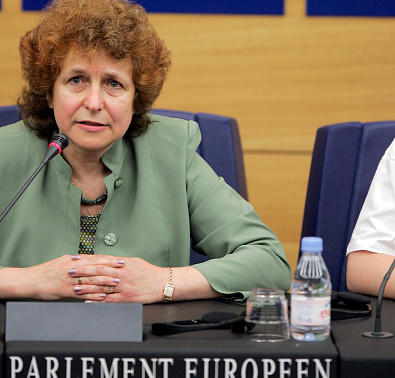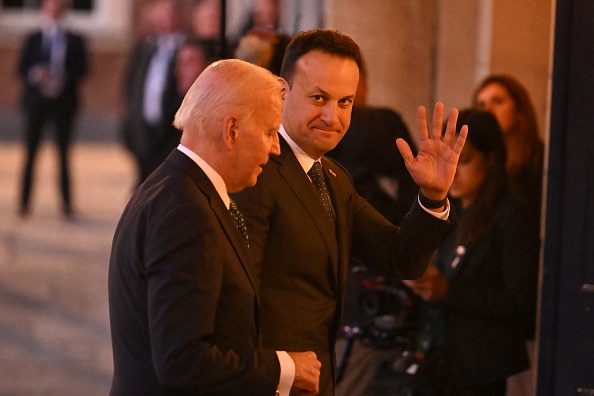Neutrality, never far from Swiss national debate, now will be the subject of a referendum that could end the country’s sanctions on Russia.
“The lack of neutrality means they lose Russian oligarch money, and potentially scare away others too. They don’t mention the latter, needless to say,” University of Zurich professor Nicholas Martin tells Brussels Signal.
But if voters adopt the Neutralitätsinitiative (neutrality initiative), it will prevent Switzerland from imposing or joining any sanctions regime unless the UN Security Council approves it.
With Russia and China as permanent members, this means Switzerland will likely never join a sanctions regime against either country.
Christoph Blocher, who shifted Swiss politics rightward as de facto head of the Swiss People’s Party, handed in a petition on April 11 with 132,000 signatures which will trigger a referendum on a new constitutional amendment.
This referendum will now likely take place in the next few months.
For its backers, it is a particularly urgent subject since Russia’s invasion of Ukraine. Since 2022, the Swiss People’s Party have insisted “Switzerland’s position in the world, and as a negotiating place depends on neutrality,” Martin adds.
And it has already kicked off a controversy that goes to the heart of what it means to be Swiss.
“Neutrality is too often used as an excuse – Switzerland must assume international responsibility,” argues Swiss MP Elisabeth Schneider-Schneiter. It also prohibits Switzerland from entering into a military alliance unless it is attacked, or taking part in military conflicts between third countries.
“It is clear to most Swiss people integration into the EU/NATO is not possibly compatible with our understanding of the state,” states the manifesto.
“It is also better for ourselves if we do not allow ourselves to be drawn into the wars of other states,” it continues.
After all, it says, “all people want to live in peace, except for a few small elites who make good money from war.”
Not all in Switzerland’s foreign policy establishment are convinced by this “understanding of the state”, or what they see as a simplistic understanding of neutrality.
“Neutrality is not simply ‘good’. It can easily turn into the opposite,” says Nicole Barandun-Gross, a member of the Swiss parliament’s security policy committee.
The amendment restricts the country’s options, she adds, and “Switzerland needs strategic options – especially for war.”
In a January 2023 survey, 55 per cent of Swiss voters said they wanted closer cooperation with NATO, an increase of ten percentage points over 2021.
And while 91 per cent support neutrality, 57 per cent believe Switzerland should reconfigure its approach to neutrality, taking more overt stances on foreign policy issues.
For its staunchest advocates, though, Swiss neutrality has received a series of “stabs in the back”, says Swiss tech sector worker, Nicole Fasel.
These range from Swiss soldiers’ presence in the UN Kosovo peacekeeping mission, to Berne’s membership in NATO’s Partnership for Peace programme, to its April 10 decision to join the European Sky Shield air defence system, says Fasel.
There may be more considerations at work than pure political theory, too.
Swiss banks manage an estimated $150-200 billion for Russian clients, say the Swiss Bankers Association and the US Commission on Security and Cooperation in Europe.
Of the oligarchs closest to President Vladimir Putin, 32 have property, bank accounts, or businesses in Switzerland, Zurich transparency NGO Public Eye says.
In August 2023, Switzerland followed the EU in adopting an eleventh package on sanctions against Russia. It also has committed to spending roughly $2 billion in humanitarian and development aid to Ukraine through 2028.
There also is the matter of Blocher’s own ambitions–after only in January declaring he was retiring for politics.
The Neutralitätsinitiative is Blocher’s “vehicle to dominate the discourse against NATO,” writes Georg Häsler, a Swiss army colonel turned journalist.
Altstätten resident Adrian Ruest puts it slightly more bluntly.
“This Initiative is a disgrace for Switzerland”, which only lets it “avoid having to contribute to the security of Europe, to be able to continue to free ride on NATO and the EU in the future and, above all — just as Blocher likes it — to be able to do business with any bandit, no matter how nasty,” he says.
In June 2023, Blocher’s party boycotted an address by President Volodymyr Zelenskyy, in which he called on Switzerland to provide Ukraine with military support.
If the referendum fails, though, it will be a democratic endorsement of Switzerland’s right to take part in international sanctions–and will likely spell trouble not just for Russian stashed cash, but a fat pile of money from other regimes, too.
Including Credit Suisse’s $230 million from Jordan’s King Abdullah II, and another account holding millions of dollars for Hosni Mubarak’s two sons, says The New York Times.





